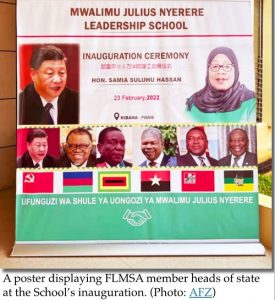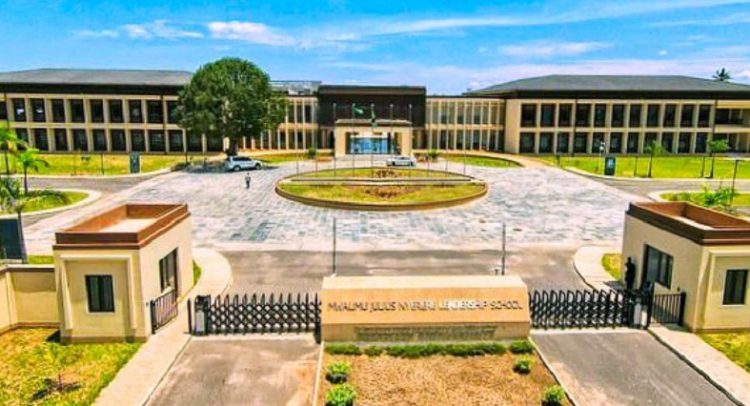China’s establishment of its first political school in Africa has sparked considerable debate, particularly regarding its potential impact on African democracy. Here are some key considerations and the possible adverse effects:
Promotion of Authoritarian Models
- Political Influence: The political school may promote the Chinese model of governance, which emphasizes centralized authority, state control over various sectors, and a one-party system. This could undermine efforts to strengthen multi-party democracy in African nations.
- Soft Power Expansion: By educating African leaders and political elites in Chinese political thought, the school could exert significant soft power, aligning African governance styles more closely with Chinese principles, which may be less democratic.
Erosion of Democratic Norms
- Influencing Governance Practices: Graduates of the school might adopt governance practices that prioritize state control over individual freedoms, potentially leading to a reduction in political pluralism, free speech, and civil liberties.
- Undermining Civil Society: If African governments influenced by this school become less tolerant of dissent and opposition, civil society organizations and independent media could face increased restrictions, weakening democratic discourse.
Impact on Electoral Processes
- Manipulation of Elections: The Chinese governance model does not prioritize competitive elections. African leaders trained in such a system may be more inclined to manipulate electoral processes to maintain power, leading to flawed or non-competitive elections.
- Reduced Accountability: With a focus on stability and control, the school’s teachings may encourage African leaders to prioritize staying in power over accountability to their electorate, diminishing the quality of democratic governance.

Challenges to Rule of Law
- Weakening Judicial Independence: The Chinese model often involves significant party control over the judiciary. If this approach is adopted in Africa, it could undermine judicial independence and the rule of law, which are crucial pillars of democracy.
- Corruption Risks: The lack of transparency and accountability associated with the Chinese governance model could exacerbate corruption in African countries, as leaders may feel less pressure to adhere to democratic standards.
Marginalization of Opposition and Minority Groups
- Repression of Dissent: Training that emphasizes state control could encourage African leaders to suppress opposition parties and minority groups, leading to increased political repression and marginalization.
- Social Instability: The suppression of opposition and dissent can lead to social unrest, as marginalized groups may resort to protests or other forms of resistance, potentially destabilizing the region.
Economic Influence Leading to Political Control
- Debt-Trap Diplomacy: The economic influence China exerts through loans and investments may be coupled with political influence through the school, leading African countries to adopt policies that favor Chinese interests, even at the expense of democratic principles.
- Policy Alignment: African nations may feel compelled to align their policies with China’s political interests, which could include restricting political freedoms or supporting China’s stance in international fora, even when it conflicts with democratic values.
Long-Term Shift in Political Culture
- Cultural Shift Toward Authoritarianism: Over time, the continued influence of Chinese political teachings could lead to a gradual cultural shift in African politics, where authoritarian practices become more normalized and accepted.
- Generational Impact: As more African political leaders and elites are trained in this system, the impact could extend to future generations, making it increasingly difficult to reverse the trend toward authoritarianism.
- Reduced International Pressure for Democracy
- Legitimization of Non-Democratic Practices: The endorsement and support of Chinese-style governance by African leaders could legitimize non-democratic practices, making it harder for domestic and international actors to advocate for democratic reforms.
Conclusion
While China’s political school in Africa could offer valuable training and development opportunities, the potential adverse effects on African democracy cannot be ignored. There is a risk that the school could contribute to the erosion of democratic norms, the suppression of political freedoms, and the entrenchment of authoritarian practices across the continent. African nations must carefully navigate this influence, ensuring that their political systems remain aligned with the democratic values and aspirations of their citizens.
Chrylafordy@gmail .com
The writer is Kingsley (SIB)


